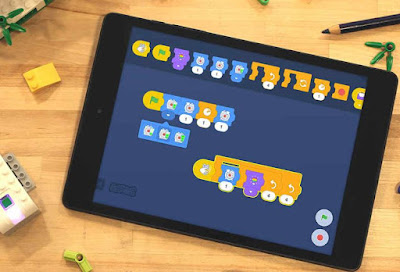Google
and MIT are joining forces to produce Scratch Blocks, a new and improved
variant on the programming language for little ones.
The
programming language is usually open on developer preview, and young aspiring
coders who took part in this particular year's I/O Youth event had got to test
it out.
MIT utilized
its Media Lab to help hatch up Scratch with 2007, which was conceived to be a
visual programming language. The idea behind The start was to find a fun way to
teach young children the normal knowledge needed for programming and it also
aptitudes.
Since
its generate, Scratch has fueled this talent of over 11 million kids from
across the world. The legion of fresh programmers crafted worth connected with
14 million games, stories and animations from the programming language.
The
latest generation of Scratch gets an increase of knowledge from The search
engines, as well. One thing which the company can do is usually send the
programming dialect to multiple devices in addition to platforms. It should
possibly be noted that Google rich Blockly, its proprietary dialect, into
Scratch Blocks.
This
Director of MIT's The start Team, Mitchel Resnick, noticed that the updated
variant also enables Scratch running on tinier displays, such as ones found on
drugs and smartphones.
As a
large number of enterprises usually are focusing their efforts with kids'
products, some advisors are taking things additionally and embedding
programmable things. Resnick is confident that Scratch Blocks would be the
"universal programming language across the items. "
Through
Google's involvement from the project, the programming language's likelihood
for adoption just surged.
Scratch
uses shape-based system to interchange the rigorous syntax in addition to
punctuation of traditional selection. This is what some in the profession call
a "Lego technique, " as it will depend on how logical shapes healthy
together. The fact it's intuition-reliant makes it work wonderfully with
children, who can certainly rely more on image clues than on analytical
solutions.
Students
who were component of this year's I/O Childhood met the technology go on.
Participants also got various treats, such as demonstrations on how 3D-printing
works, tutorials on how to properly animate some sort of character, and a
Scratch Hinders demo where Bluetooth Legos may very well be assembled.
Techsourcenetwork

